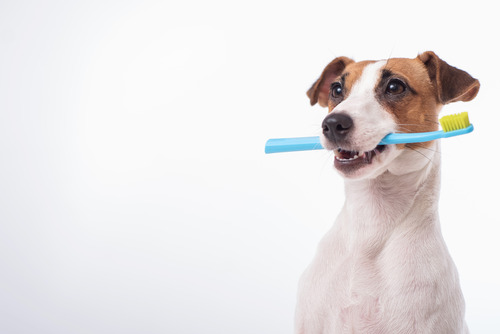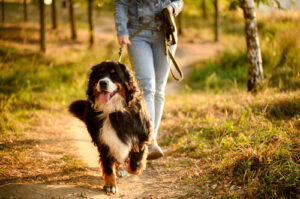Dog bad breath is a common issue that many pet owners encounter. While it might seem like a minor nuisance, persistent bad breath in dogs can be an indicator of underlying health problems that need addressing. This blog will explore effective strategies that Montgomery Veterinary Associates recommend for managing your dog’s bad breath, ensuring your beloved pet remains happy and healthy.
Understanding the Causes of Dog Bad Breath
Oral Hygiene and Health
Poor oral hygiene is the most common cause of dog bad breath. Plaque buildup, gum disease, and tooth decay can harbor bacteria that produce foul odors. Regular veterinary check-ups are essential to ensure that your dog’s teeth and gums are healthy. Our team at Montgomery Veterinary Associates on Vaughn Road or Carter Hill can provide professional dental cleanings and examinations to help manage your dog’s oral health.
Diet and Digestive Health
What your dog eats significantly affects their breath. Certain foods can contribute to the buildup of plaque and tartar, or cause digestive issues that may lead to bad breath. Discussing your dog’s diet with a veterinarian can provide insights into whether their food is contributing to the problem and what dietary changes might help.
Professional Veterinary Care
Regular Dental Check-Ups
Scheduling regular dental check-ups is vital for maintaining your dog’s oral health. During a dental check-up, veterinarians can thoroughly clean your dog’s teeth, check for signs of oral diseases, and provide treatments if necessary. Call our Vaughn Road location at (334) 271-1003 or our Carter Hill location at (334) 269-2508 to schedule a dental appointment.
Advanced Dental Treatments
For more severe cases, advanced dental treatments may be necessary. These can include dental X-rays, extractions, or even periodontal therapy depending on the severity of the underlying condition. Our skilled veterinarians at Montgomery Veterinary Associates are equipped to offer these services, ensuring the best care for your pet’s oral health.
Preventative Measures at Home
While in-home treatments are not recommended without professional guidance, there are preventative measures you can take to help keep your dog’s breath fresh:
- Choosing the Right Dog Food: Selecting the right food for your dog is crucial for good oral health. Foods designed to reduce plaque and tartar buildup can significantly impact your dog’s breath. Discuss with our veterinarians which dog food brands are best for your pet’s dental and overall health.
- Dental Toys and Chews: Dental toys and chews can help reduce plaque buildup on your dog’s teeth. These products are designed to be safe and effective for oral hygiene, but it’s important to choose the right size and type for your dog to prevent any choking hazards or digestive issues.
- Fresh Water and Healthy Snacks: Keeping fresh water available at all times helps wash away food particles from your dog’s mouth, reducing the potential for bad breath. Crunchy vegetables like carrots can be a healthy snack that also helps clean your dog’s teeth.
When to Contact a Veterinarian
If your dog’s bad breath persists despite regular dental care and proper diet, it may be time to consult with a veterinarian. Persistent bad breath can be a sign of more serious health issues such as kidney disease or diabetes. Call Montgomery Veterinary Associates at our Vaughn Road location at (334) 271-1003, our Carter Hill location at (334) 269-2508, or request an appointment online for a comprehensive examination.
Schedule A Dental Appointment at Montgomery Veterinary Associates
Managing your dog’s bad breath involves a combination of professional veterinary care and preventative measures at home. Regular check-ups, proper diet, and dental care are key to preventing and treating bad breath. If you’re concerned about your dog’s oral health, contact Montgomery Veterinary Associates to schedule an appointment. Our experienced team is here to ensure your dog stays as healthy and happy as possible.






